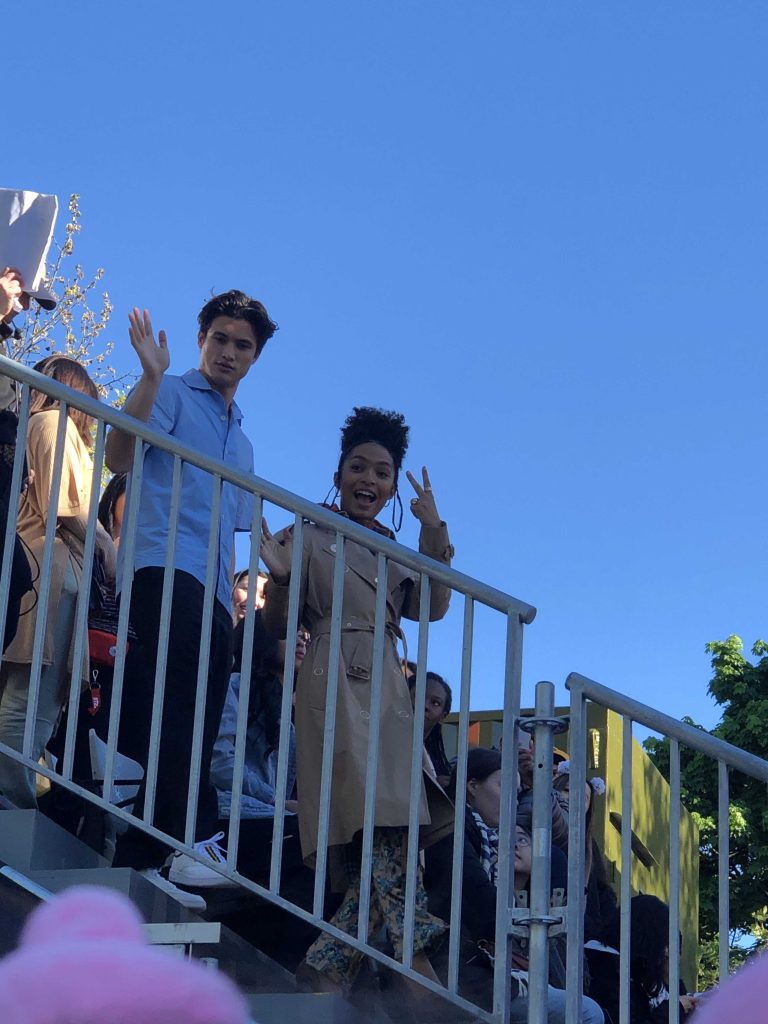
“The Sun is Also a Star,” released on May 17, was expected to be a grand cinematic adaptation of Nicola Yoon’s bestselling coming of age story. It consists of underlying themes of such as human connection, race relations, and immigration. The movie demonstrated a clear effort to tackle these issues well, however, the cheesy dialogue and cinematography caused Russo-Young’s movie to fall short of its expectations.
The book and the movie follow two characters, Daniel Bae (Charles Melton) and Natasha Kingsley (Yara Shahidi), over the course of one day. After they meet on a crowded street, Daniel is convinced that they are “meant to be.” Natasha doesn’t believe in destiny, but gives into Daniel, who believes that he can make her fall in love within 24 hours. As the two characters battle with expectations and uncertainty, they slowly get to know each other.
We don’t see many stories that take place during the course of the day before a main character expects to be deported, which is a main reason why this movie had much greater expectations than its $2.5 million box office, and was so important. As something that hundreds of thousands of people in the United States experience every year, it’s a harsh story that deserves to be told well.
The director, Ry Russo-Young, worked closely with immigration lawyers to ensure that the details of the immigration and deportation process were accurate: “[we had him] change words and specifics because we really wanted to do justice to that part of the story,” he told Polygon, a culture-based news website.
Recently, there has been a shift in the focus of Young Adult book adaptations from those based upon the supernatural and dystopia, to those based on diversity and exploring the nuances of human interactions. This switch reflects our ever-changing sociopolitical environment, and the conversations young adults are more willing and eager to have. To All the Boys I’ve Loved Before, Love Simon, Everything, Everything, and The Hate U Give are just a few of the recent book-to-movie adaptations that tackle important ideas of race, sexuality, and prejudice. The Sun is Also a Star does the same, and makes sure that the characters aren’t just defined by their sexuality or cultural identity.
However, in striving to be like its other diverse, Young Adult, book-to-movie counterparts, the film does the job a little too well and feels like just another Young Adult Romantic comedy. The groundbreaking themes that this movie covers are overshadowed by a familiar plot structure: two teens having life-altering events ahead of them against all odds falling in love.
Part of the issue is that these life-altering events seem to be inconsequential to the main characters. The movie falls into a hole that portrays teenagers as impulsive and desire-driven, whereas the book makes it clear that they’re not. Both Daniel and Natasha are obviously intelligent and well-equipped to make logical decisions about their futures; Daniel has an interview with Yale that day and Natasha is meeting with lawyers to reverse her family’s deportation. Despite this, they rarely let these barriers take priority over their romantic desires. In an attempt to be cheesy, many impactful plotlines are overshadowed.
On the other hand, many believe that the book balanced the themes well, satisfying both dreamers and hopeless romantics. Junior Afrida Khalid said, “…my favorite aspect [of the book] was how far fetched it was. Living in New York City, I know there’s little to no chance that anyone will find a stranger and almost instantly fall in love with them…”
Elizabeth Katanov said, “The book was a very easy yet eye-opening read as it [covered] many relevant topics such as immigration, deportation, and racism.” However, she feels that other topics in the novel like suicide could have been “more informed and developed.”
The rise in diverse books and movies is a great first step to having a more inclusive, and representative media and entertainment industry. Stories about immigration, power struggles and racial dynamics help create conversation between groups of people. Recent successes like Black Panther and Crazy Rich Asians shattered stereotypes and preconceived stigmas. However, coupled with the lowered expectations of The Sun is Also a Star, it’s clear that there’s more work to be done.



























